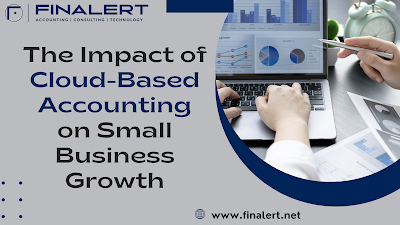Introduction:
Mergers and acquisitions (M&A) are strategic moves that can significantly impact a company’s growth, market position, and financial health. However, the path to a successful M&A is fraught with challenges and complexities. To ensure a smooth and beneficial M&A process in small businesses several key considerations must be considered. This blog explores these crucial factors to help you navigate the M&A landscape effectively.
1. Strategic Alignment
The first and foremost consideration in any M&A deal is strategic alignment. The acquiring company should evaluate how the target company fits into its long-term strategic goals. Will the acquisition help enter new markets or enhance competitive advantage? An M&A should align with the overall business strategy, ensuring that the merger or acquisition supports the company's vision and objectives.
2. Due Diligence
Due diligence is a critical step in the M&A process. It involves a comprehensive assessment of the target company’s financials, operations, legal standing, and market position. This process helps identify potential risks, liabilities, and opportunities associated with the target company. Effective due diligence minimizes surprises post-acquisition and helps in making an informed decision.
3. Cultural Fit
Culture is often an overlooked but crucial aspect of M&A success. Merging different corporate cultures can lead to conflicts, reduced employee morale, and integration challenges. Assessing cultural fit involves evaluating the values, work styles, and organizational practices of both companies. A strong cultural alignment fosters smoother integration and better collaboration between teams.
4. Financial Considerations
Financial considerations are at the heart of any M&A transaction. This includes evaluating the valuation of the target company, the structure of the deal, and the financial impact on both companies. Determine whether the acquisition is being financed through cash, stock, or a combination of both, and assess the potential impact on financial performance and shareholder value.
5. Regulatory and Legal Issues
M&A transactions are subject to various regulatory and legal requirements. It is essential to ensure compliance with antitrust laws, industry regulations, and other legal obligations. Regulatory approval may be required depending on the size and nature of the deal. Addressing legal issues early in the process helps avoid delays and complications.
6. Integration Planning
Post-M&A integration is crucial for realizing the benefits of the transaction. A well-thought-out integration plan outlines how the combined entity will operate, including changes to organizational structures, systems, and processes. Effective integration planning involves setting clear goals, defining key milestones, and allocating resources for a smooth transition.
7. Communication Strategy
Effective communication is vital throughout the M&A process. Clear and transparent communication helps manage expectations, reduce uncertainty, and maintain stakeholder confidence. Communicate regularly with employees, customers, and investors about the progress of the deal and its implications.
8. Talent Retention
Retention of key talent is critical to maintaining business continuity and ensuring the success of the M&A. The transition period can create uncertainty among employees, which may lead to attrition. Identifying and retaining key personnel from both companies helps preserve expertise and supports a smooth integration process.
9. Risk Management
Every M&A transaction carries inherent risks. Identifying and managing these risks is crucial for mitigating potential negative impacts. Risks may include operational disruptions, financial losses, or reputational damage. Developing a risk management plan helps anticipate challenges and put in place strategies to address them.
10. Post-M&A Evaluation
After the completion of the M&A, it is essential to evaluate the success of the transaction. Assess whether the strategic objectives have been met, and review the integration process to identify lessons learned. Post-M&A evaluation helps refine future M&A strategies and improve the overall process.
Conclusion
A successful M&A transaction requires careful planning, thorough analysis, and effective execution. By considering strategic alignment, conducting due diligence, assessing cultural fit, addressing financial and legal issues, and planning for integration, you can increase the likelihood of a successful merger or acquisition. Effective communication, talent retention, and risk management further contribute to a smooth transition and the realization of desired outcomes. With these key considerations in mind, you can navigate the complexities of M&A and achieve your strategic objectives.
For more details:
Call: +1 (347) 535-4499
Website: www.finalert.net












